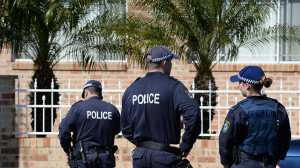By Kathryn Maureen Ryan
Impunity Watch Managing Editor
United Nations Headquarters, United Nations – More than two dozen foreign ministers have urged permanent members of United Nations Security Council to avoid using the veto power in matters that involve mass atrocities including genocide. The Security Council has been criticized for failing to produce resolution to respond to mass-atrocities committed by the regime of Syrian President Bashar al-Assad and rebel groups including the al-Nusra Front and the Islamic State of Iraq and the Levant (ISIS) during the Syrian civil war which has raged on for more than three years. Several resolutions on Syria proposed by members of the United Nation’s most powerful body have been vetoed by Russia and China.

France, which is one of the five permanent members of the Security Council is proposing that the France, The United States and The United Kingdom voluntarily refrain from using the veto in what French foreign minister Laurent Fabius called “mass crimes”. “We cannot stay paralyzed,” He said calling for an agreement by next year’s 70th anniversary of the UN’s founding.
Sir Mark Lyall Grant, The United Kingdom’s Ambassador to the United Nations, expressed support for France’s proposal saying, “The UK is appalled by its recent abuse at the expense of millions of suffering civilians.” United States Ambassador Samantha Power did not express specific support for the Fabius’ proposal but criticizes the China and Russia’s vetoes on the Syrian issue, the United States has used its veto power more than two dozen times on issues involving Israel.
“We can even ask ourselves whether ISIL would have gained the foothold it has if the Security Council had been able to come together,” she said, using an acronym for the Islamic State extremist group that has seized huge parts of both Syria and Iraq. Neither Russia nor China sent its ambassador to United Nations to the meeting and China’s representative suggested that Security Council members should “fully consult” with each other to keep disputed draft resolutions from reaching a vote.
Russia’s Ambassador to the United Nations Vitaly Churkin has maintained that Russia will oppose any change to veto rules. Vitaly Churkin’s deputy Alexander Pankin reiterated Russia’s concerns asking what mechanism the UN Secretary General would resort to in order to limit a Security Council member state’s right to use veto. Russia’s representative said the veto repeatedly protected the council from “doubtful undertakings” and asked skeptically how secretary general Ban Ki-Moon would determine what qualified as a mass atrocity. Earlier this year Ban Ki-moon called Syrian conflict an “extraordinarily brutal war” and warned that the UN’s credibility would suffer if was unable to help end it.
Earlier this year both Russia and China vetoed a draft UN resolution calling for the crisis in Syria to be referred to the international criminal court – ignoring support for the measure by 65 other states and all 13 remaining members of the Security Council. Vitaly Churkin, Russia’s UN ambassador, dismissed that vote as a “publicity stunt.
“Moscow and Beijing can veto a resolution but they can’t suppress the desire for justice by the Syrian people and the dozens of governments that stood for their rights,” said Richard Dicker, international justice director at Human Rights Watch in response to the vetoes. “With the Syrian crisis entering a fourth year, atrocities raging on all sides, and the death toll skyrocketing well over 150,000, Russia and China’s vote for continued impunity is a disgrace.”
For more information please see:
Irish Independent – UN’s Big Guns Urged to Limit Veto – 26 September 2014
RIA Novosti (Russian State Media) – Russia Vows to Oppose Push to Change UN Veto Rules – 26 September 2014
The Associated Press – Security Council Urged to Spare Veto in Atrocities – 25 September 2014
The Guardian – Russia and China Veto UN Move to Refer Syria to International Criminal Court – 22 May 2014


